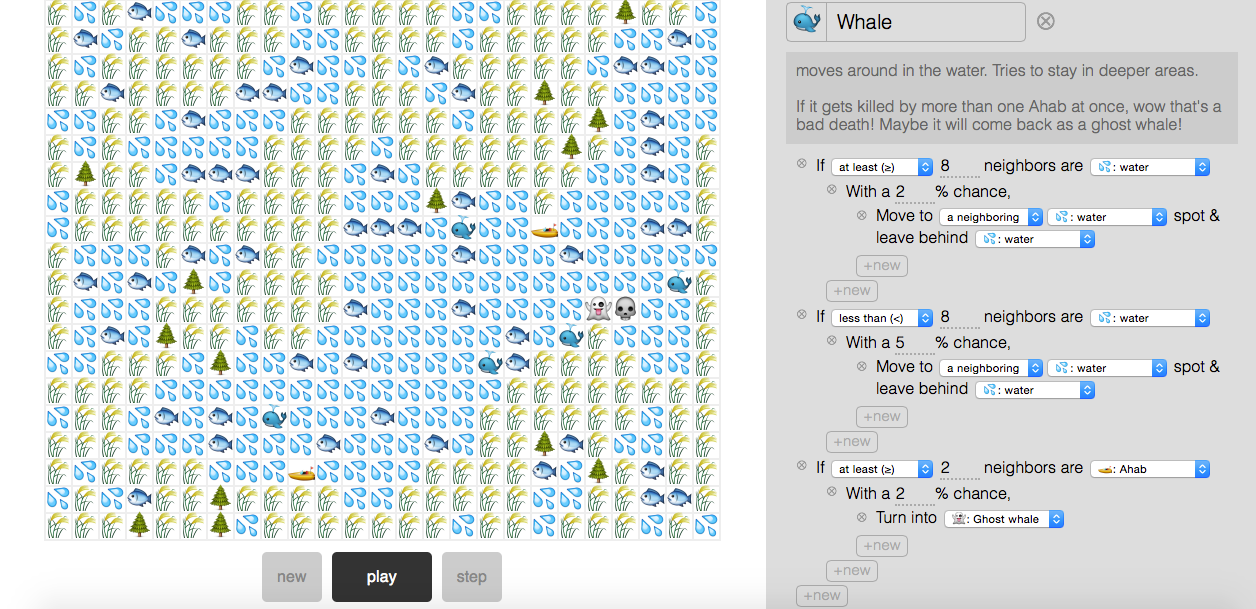What if you could mod a game as seamlessly as playing it the way it was written? In Nicky Case’s latest simulation tool, A Simulation in Emoji, just that promise is fulfilled. In the introduction for A Simulation in Emoji, Case writes, “there is *no* difference between playing and making, between reading and writing.” This is because Case has given you, the player, all the tools already, to an endlessly customizable extent. But just what is being customized? A simulator for anything and everything—through emojis.
Case is no stranger to life-simulation tools. Case first made waves in 2014 with Coming Out Simulator, a self-described “half-true game about half-truths.” Later Case (and Vi Hart of YouTube fame) created the “playable post” Parable of the Polygons, which is actually less a game and more of an interactive lesson about diversity and how to navigate tricky unconscious bias. Case doesn’t falter when approaching tough, day-to-day subjects, and A Simulation in Emoji isn’t a stranger to this philosophy.
“There is no difference between playing and making.”
In his latest project’s description, Case expresses hope for players to create their very own Parable of the Polygons-esque explanations for the world. By using his free, infinitely customizable tool to represent essentially any complex system of the world—be it forest fires, global warming, animal extinction, racial bias, or anything else that can be portrayed via emojis—the possibilities are nearly endless. This leaves room for cleverness, such as Parable of the Polygons collaborator Vi Hart’s experiments with the new tool. Hart has created a cutesy snail simulator, in addition to a simulation of the effect of ‘ghost’ whales in the environment, thus truly showcasing the diverse topics, serious or not, one can experiment with using the tool.

In an interview with Kill Screen about recent release Neurotic Neurons, an interactive explanation about neurons and anxiety, Case described himself as being on the more “fuzzy side” of game design. In an explicit reference to Explorable Explanations, a project in the realm of text coupled with interactivity, Case said, “I can borrow the best bits of videogames, (learning-by-doing, emergent behavior design) but avoid the expectations and conventions of the medium (scores, fail states, a scruffy middle-age protagonist).” This can be said to also encompass the heart of A Simulation in Emoji as well, which transcends gaming for its own sake to become a useful, educational tool.
With the tools to create easy-to-digest experiences with a variety of topics, the player can help others understand a seemingly complex issue, all through the simple power of emojis. Or, you can just manipulate dozens of poop emojis to disappear across the grid by the power of sweeping toilet emojis. It’s your choice.
Create your own world simulations using A Simulation in Emojis, click here.





